Present Perfect It is used to talk about

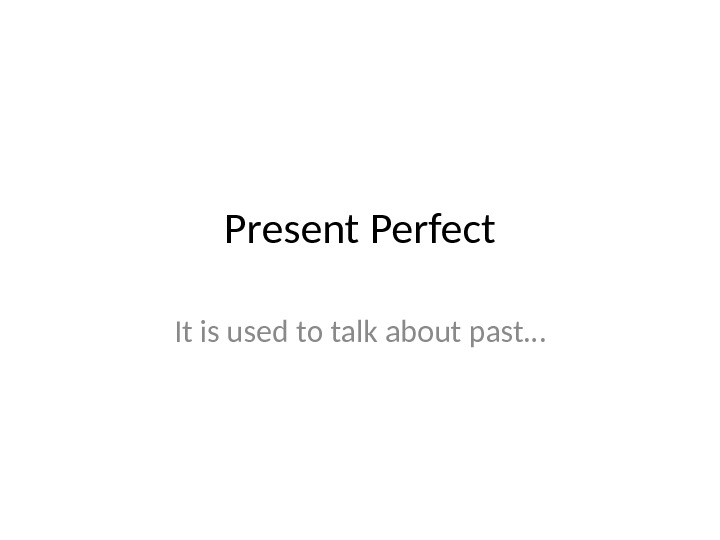
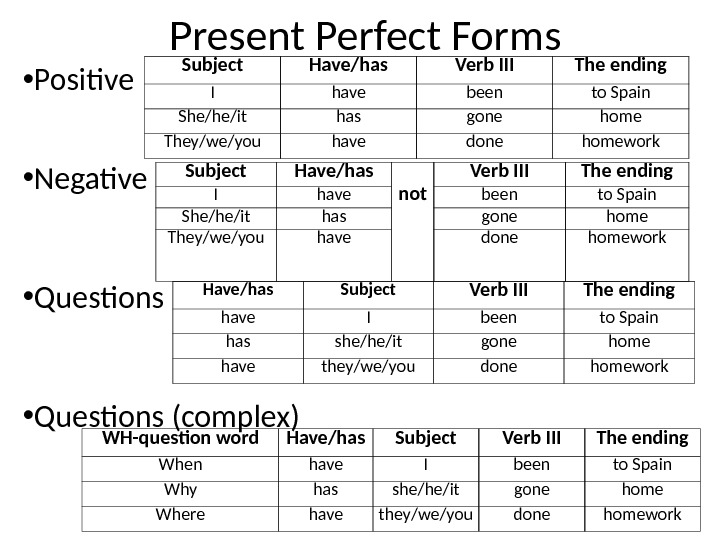
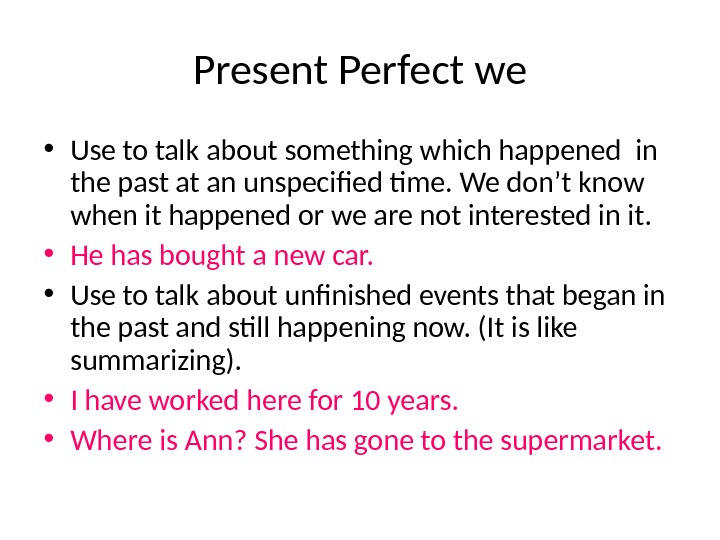
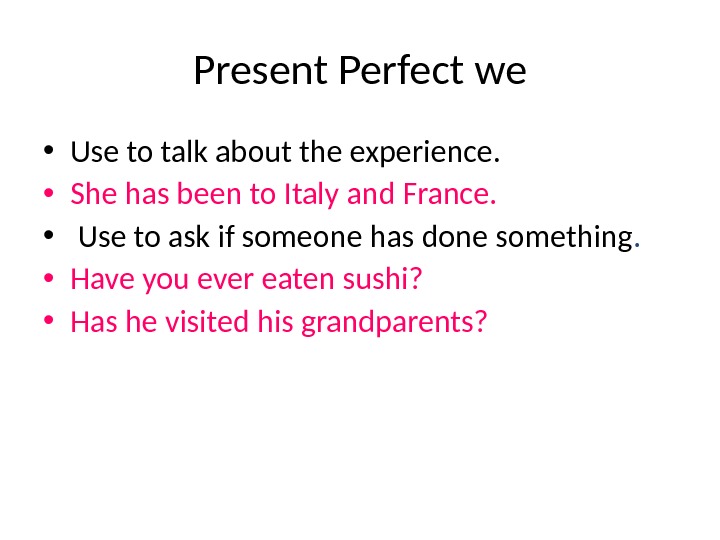
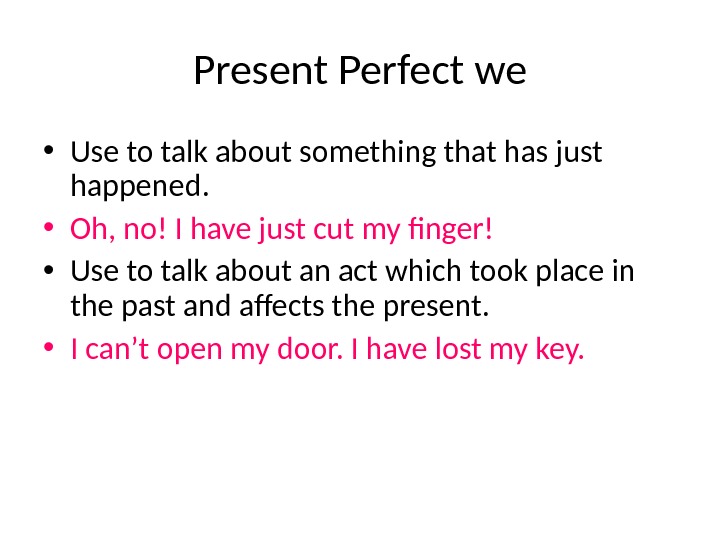
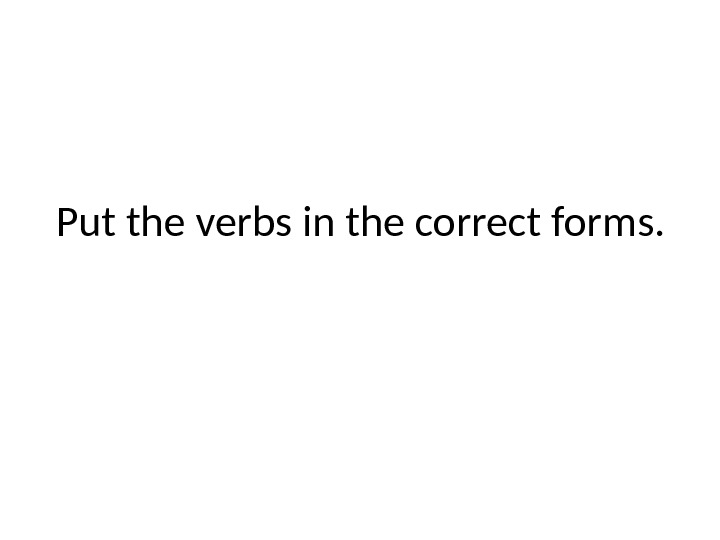
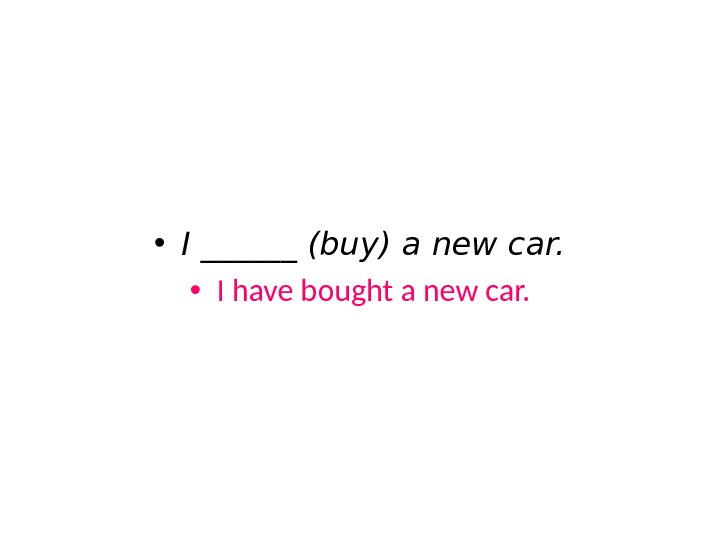
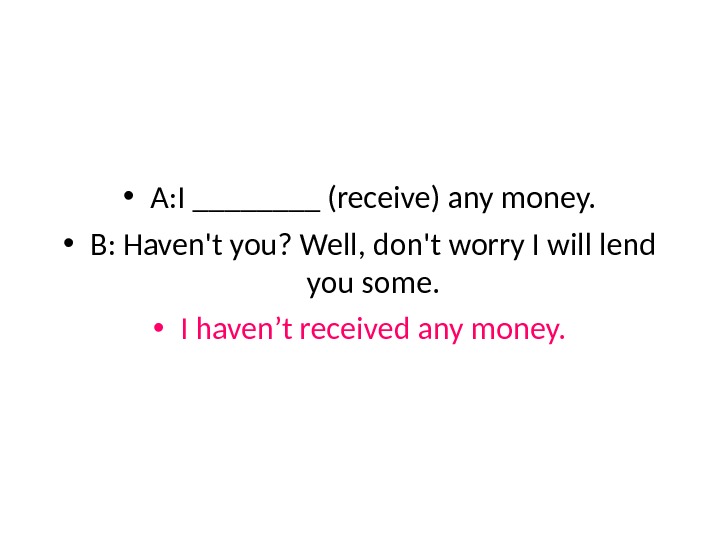
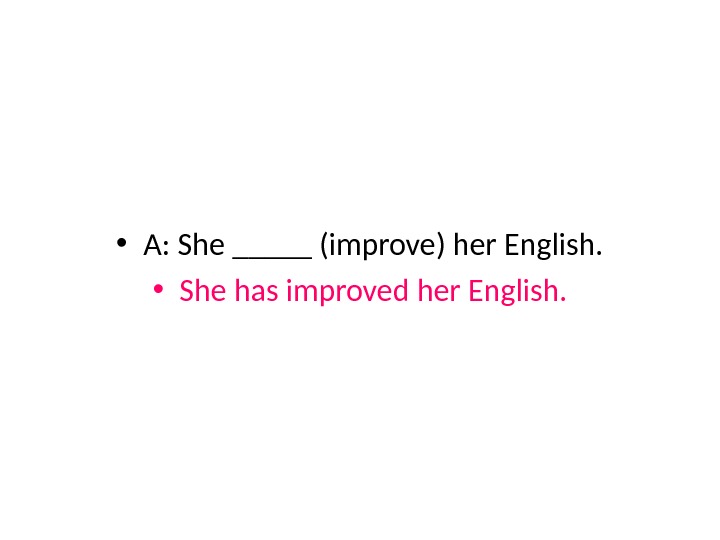
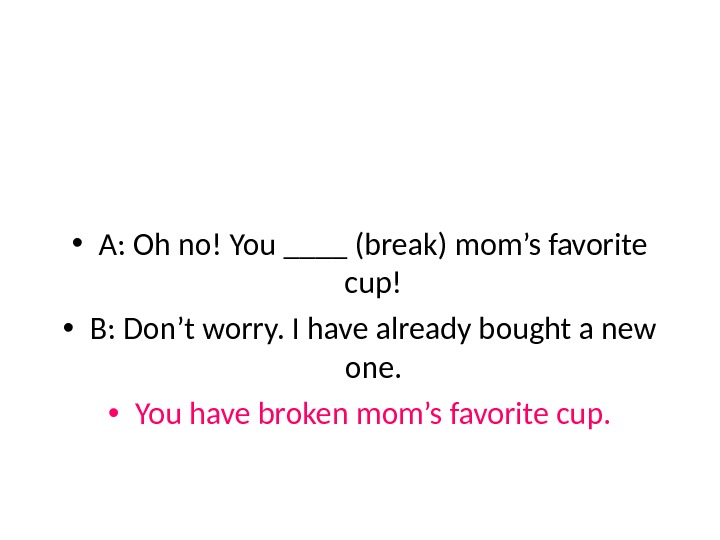

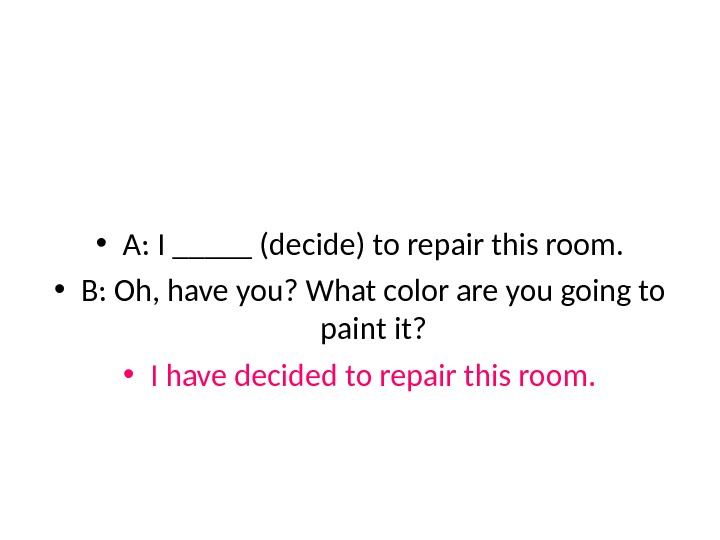
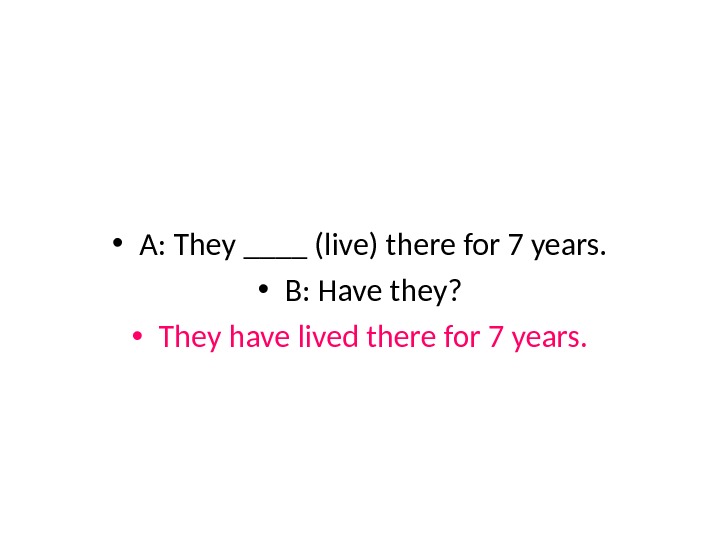

- Размер: 320 Кб
- Количество слайдов: 14
Описание презентации Present Perfect It is used to talk about по слайдам
 Present Perfect It is used to talk about past…
Present Perfect It is used to talk about past…
 Present Perfect Forms • Positive • Negative • Questions (complex) Subject Have/has Verb III The ending I have been to Spain She/he/it has gone home They/we/you have done homework Have/has Subject Verb III The ending have I been to Spain has she/he/it gone home have they/we/you done homework. Subject Have/has not Verb III The ending I have been to Spain She/he/it has gone home They/we/you have done homework WH-question word Have/has Subject Verb III The ending When have I been to Spain Why has she/he/it gone home Where have they/we/you done homework
Present Perfect Forms • Positive • Negative • Questions (complex) Subject Have/has Verb III The ending I have been to Spain She/he/it has gone home They/we/you have done homework Have/has Subject Verb III The ending have I been to Spain has she/he/it gone home have they/we/you done homework. Subject Have/has not Verb III The ending I have been to Spain She/he/it has gone home They/we/you have done homework WH-question word Have/has Subject Verb III The ending When have I been to Spain Why has she/he/it gone home Where have they/we/you done homework
 Present Perfect we • Use to talk about something which happened in the past at an unspecified time. We don’t know when it happened or we are not interested in it. • He has bought a new car. • Use to talk about unfinished events that began in the past and still happening now. (It is like summarizing). • I have worked here for 10 years. • Where is Ann? She has gone to the supermarket.
Present Perfect we • Use to talk about something which happened in the past at an unspecified time. We don’t know when it happened or we are not interested in it. • He has bought a new car. • Use to talk about unfinished events that began in the past and still happening now. (It is like summarizing). • I have worked here for 10 years. • Where is Ann? She has gone to the supermarket.
 Present Perfect we • Use to talk about the experience. • She has been to Italy and France. • Use to ask if someone has done something. • Have you ever eaten sushi? • Has he visited his grandparents?
Present Perfect we • Use to talk about the experience. • She has been to Italy and France. • Use to ask if someone has done something. • Have you ever eaten sushi? • Has he visited his grandparents?
 Present Perfect we • Use to talk about something that has just happened. • Oh, no! I have just cut my finger! • Use to talk about an act which took place in the past and affects the present. • I can’t open my door. I have lost my key.
Present Perfect we • Use to talk about something that has just happened. • Oh, no! I have just cut my finger! • Use to talk about an act which took place in the past and affects the present. • I can’t open my door. I have lost my key.
 Put the verbs in the correct forms.
Put the verbs in the correct forms.
 • I ______ (buy) a new car. • I have bought a new car.
• I ______ (buy) a new car. • I have bought a new car.
 • A: I ____ (receive) any money. • B: Haven’t you? Well, don’t worry I will lend you some. • I haven’t received any money.
• A: I ____ (receive) any money. • B: Haven’t you? Well, don’t worry I will lend you some. • I haven’t received any money.
 • A: She _____ (improve) her English. • She has improved her English.
• A: She _____ (improve) her English. • She has improved her English.
 • A: Oh no! You ____ (break) mom’s favorite cup! • B: Don’t worry. I have already bought a new one. • You have broken mom’s favorite cup.
• A: Oh no! You ____ (break) mom’s favorite cup! • B: Don’t worry. I have already bought a new one. • You have broken mom’s favorite cup.
 • A: ____ you___ (pack) sport clothes? • B: Yes, I have. • Have you packed sport clothes?
• A: ____ you___ (pack) sport clothes? • B: Yes, I have. • Have you packed sport clothes?
 • A: I _____ (decide) to repair this room. • B: Oh, have you? What color are you going to paint it? • I have decided to repair this room.
• A: I _____ (decide) to repair this room. • B: Oh, have you? What color are you going to paint it? • I have decided to repair this room.
 • A: They ____ (live) there for 7 years. • B: Have they? • They have lived there for 7 years.
• A: They ____ (live) there for 7 years. • B: Have they? • They have lived there for 7 years.
 • A: ___ you ever ___ (try) parachute jumping? • B: Yes, I have! I did it last summer. • Have you ever tried parachute jumping?
• A: ___ you ever ___ (try) parachute jumping? • B: Yes, I have! I did it last summer. • Have you ever tried parachute jumping?

